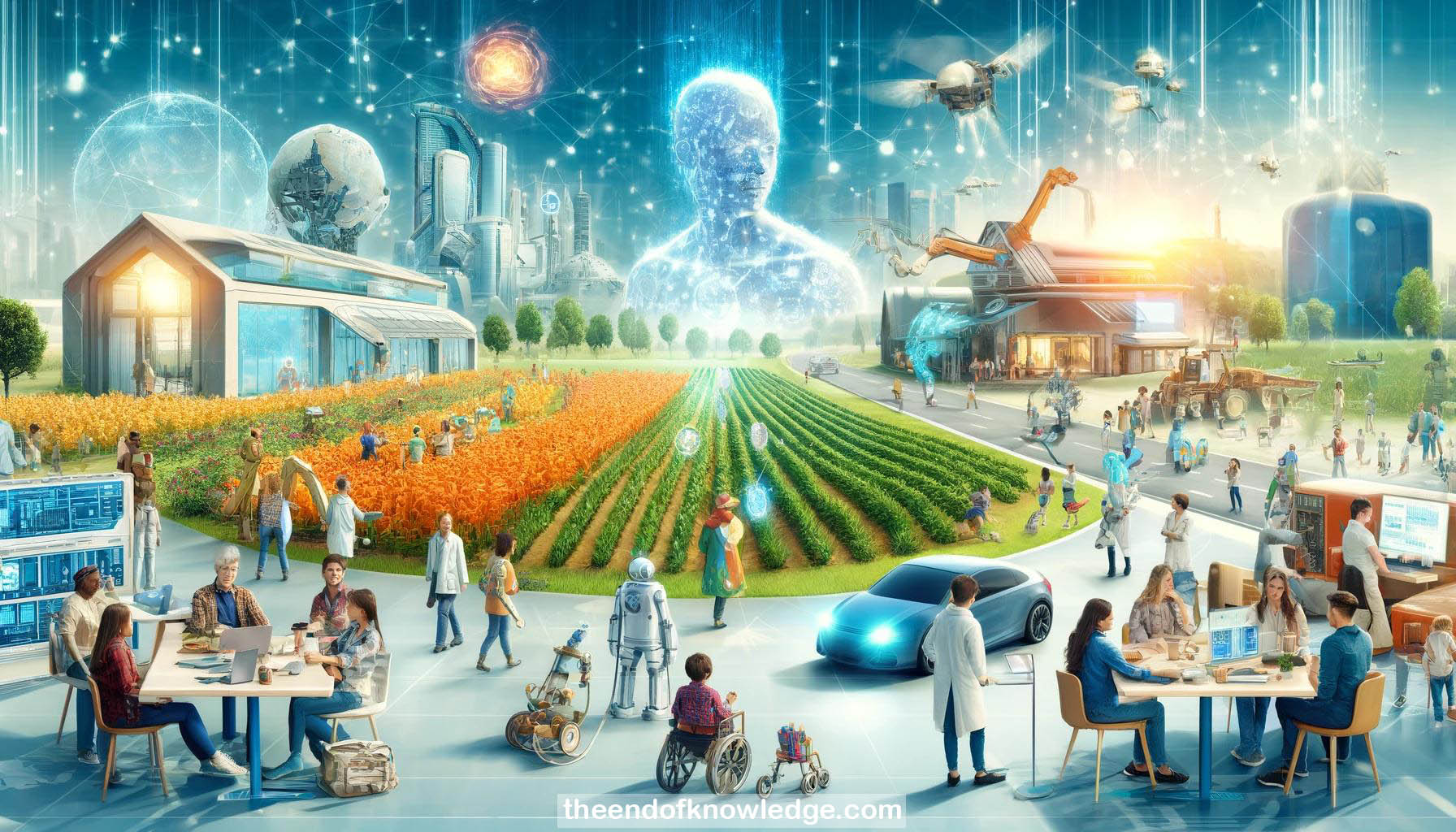 >
>
Concept Graph & Resume using Claude 3 Opus | Chat GPT4o | Llama 3:
Resume:
1.- Introduction and Overview: The panel discusses AI's profound impact on humanity and civilization, emphasizing governance, ethics, and the limitless potential AI offers.
2.- Historical Context: AI has delivered significant breakthroughs since the 1950s, from problem-solving algorithms to reinforcement learning and generative AI models.
3.- AI and Human Intelligence: Human intelligence has historically driven civilization forward, but AI introduces a new form of intelligence that can vastly enhance human capabilities.
4.- General Purpose AI: The ultimate goal of AI research is to develop systems that exceed human capabilities across all dimensions, leading to transformative societal changes.
5.- Ethical and Governance Challenges: AI's rapid advancements necessitate robust governance and ethical frameworks to ensure its safe and beneficial deployment.
6.- Recent AI Milestones: The release of GPT-4 and subsequent developments have accelerated the conversation around AI's capabilities and the need for regulation.
7.- International Response: Governments and international organizations are increasingly recognizing the urgency to regulate AI, with initiatives like the UK’s upcoming AI safety summit.
8.- Generative AI and Applications: Generative AI, exemplified by language and image models, showcases AI's potential to create novel, high-quality content and applications.
9.- AI in Science and Healthcare: AI is revolutionizing fields like biomedical research, enabling scientists to uncover new insights and accelerate drug discovery processes.
10.- Human-AI Partnership: AI systems should work in tandem with human experts, particularly in complex fields like science, to leverage the strengths of both.
11.- Future of AI in Education: AI has the potential to transform education by providing personalized, high-quality learning experiences to students worldwide.
12.- Democratizing AI Access: The accessibility of AI technology can empower people across diverse fields, fostering innovation and creativity.
13.- Economic Impact of AI: The widespread implementation of AI could potentially increase global GDP by 1000%, delivering significant economic benefits.
14.- Balancing Innovation and Regulation: Effective regulation must balance fostering innovation while ensuring AI's development aligns with ethical and societal values.
15.- Open Source AI Models: The rise of open-source AI models presents both opportunities and challenges in terms of accessibility, control, and potential monopolies.
16.- AI and Human Autonomy: AI systems must be designed to preserve human autonomy, avoiding scenarios where humans become overly dependent or infantilized.
17.- Addressing AI Bias and Fairness: Ensuring AI systems are unbiased and fair is crucial for their equitable deployment across different societal contexts.
18.- AI and Global Challenges: AI can play a pivotal role in addressing global challenges, from climate change to healthcare, by providing innovative solutions.
19.- The Role of Governments: Governments must actively engage in shaping AI policies, ensuring they reflect societal values and protect public interests.
20.- AI and Human Rights: AI development should be guided by human rights principles, ensuring technologies respect and promote individual freedoms and well-being.
21.- AI in Crisis Management: AI tools are being used to combat critical issues, such as online child exploitation, demonstrating its potential for positive societal impact.
22.- The Need for Global Cooperation: Addressing AI's challenges requires a unified global approach, leveraging the expertise and resources of international organizations and nations.
23.- AI and Future Workforce: AI will reshape the workforce, necessitating new skills and education to prepare people for emerging opportunities and challenges.
24.- AI and Scientific Discovery: AI accelerates scientific discovery by enabling researchers to process vast amounts of data and uncover new insights faster than ever.
25.- Maintaining Human Values: AI systems should be designed to reflect and uphold human values, ensuring they enhance rather than undermine societal norms.
26.- AI's Impact on Social Dynamics: The integration of AI into daily life will alter social dynamics, requiring careful consideration of its effects on human interactions and relationships.
27.- Building Trust in AI: Establishing trust in AI systems through transparency, accountability, and ethical design is essential for their widespread acceptance.
28.- Future AI Applications: Potential transformative AI applications include advanced education systems, personalized healthcare, and enhanced scientific research.
29.- AI and Global Prosperity: Harnessing AI's potential can drive global prosperity, ensuring its benefits are distributed equitably across different regions and populations.
30.- Vision for the Future: The future of AI holds immense promise, but realizing its benefits requires collective effort, ethical governance, and a commitment to human-centric values.
Knowledge Vault built byDavid Vivancos 2024